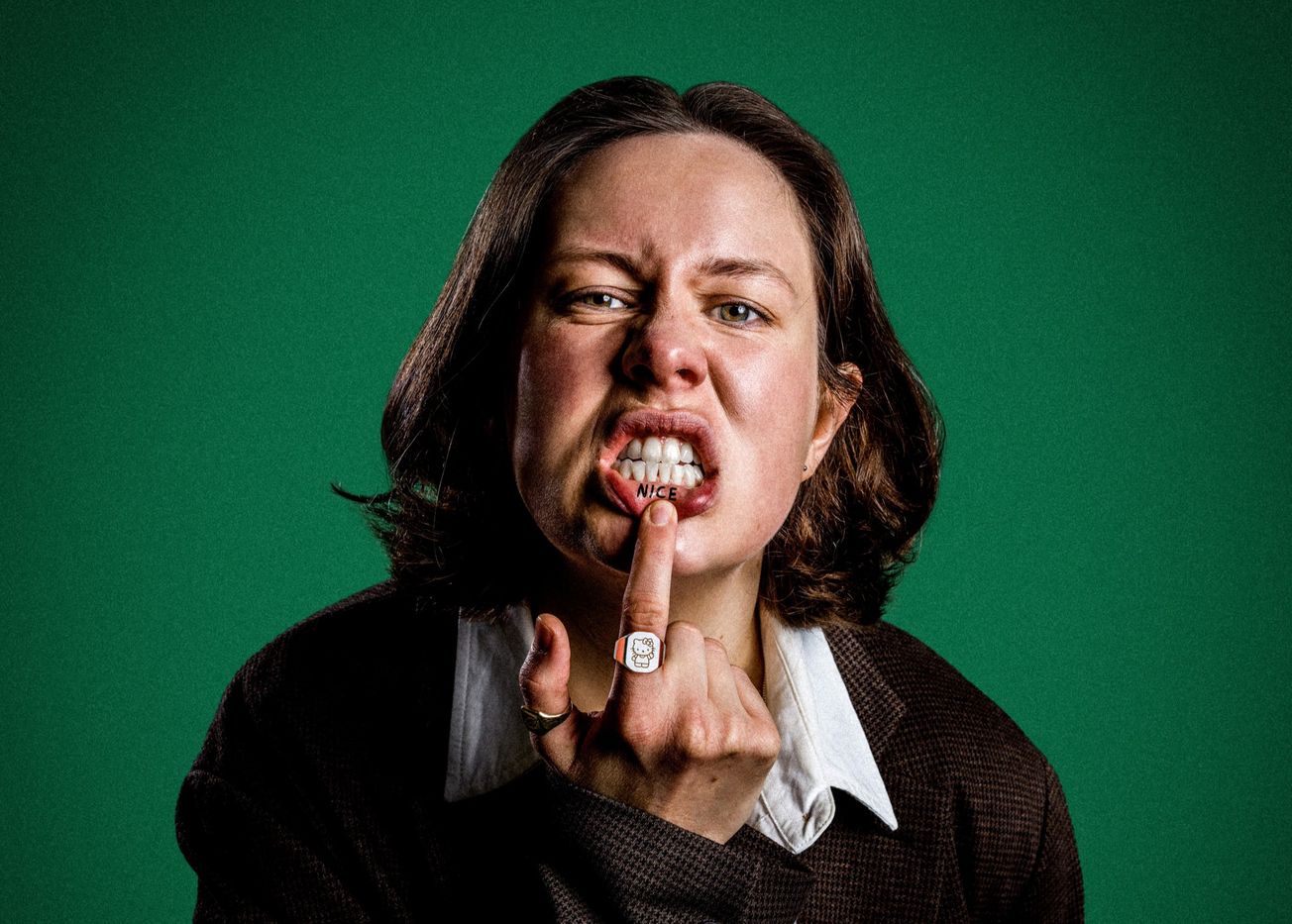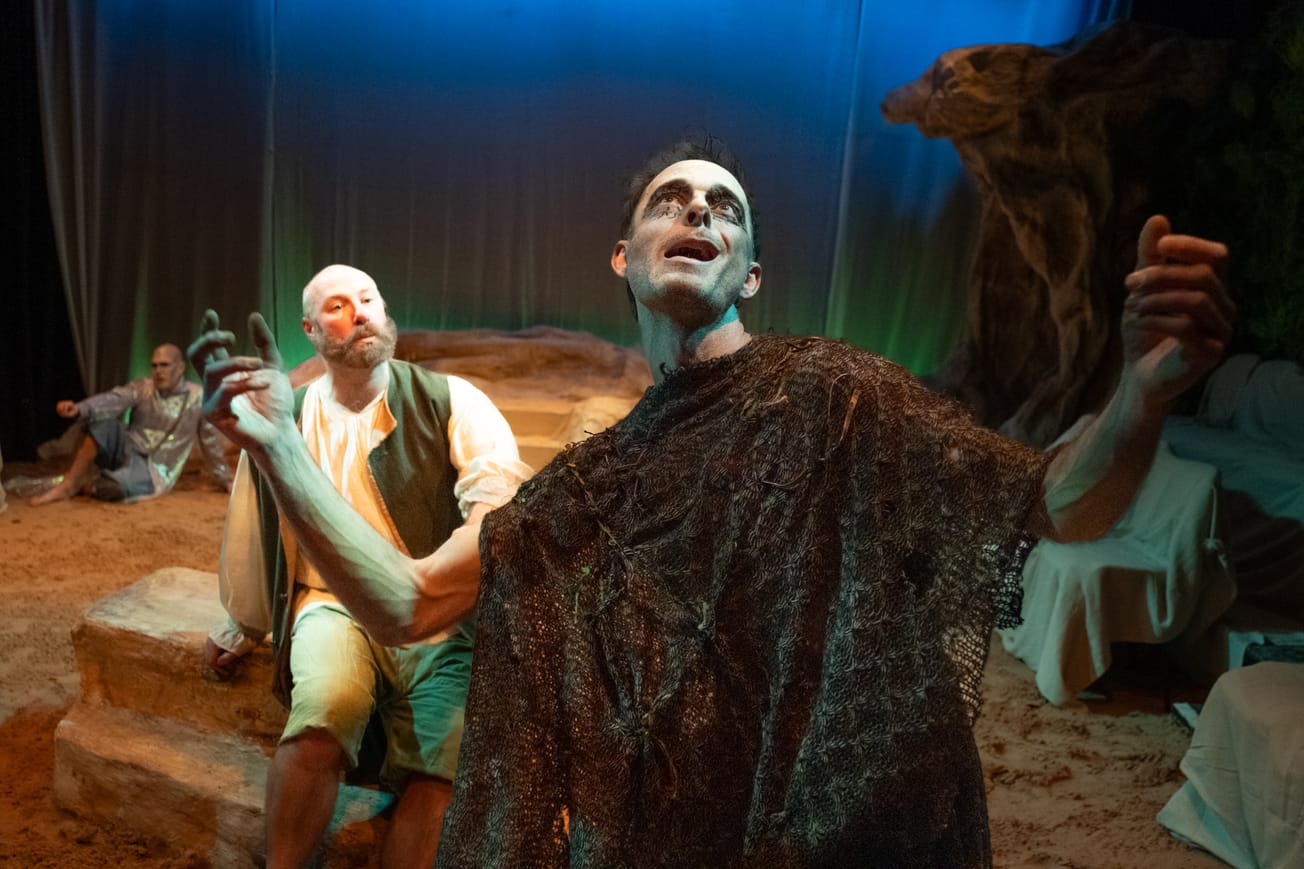By Amelia Jacob, Co-Editor-in-Chief
Fresh off the back of rave reviews from the Edinburgh Fringe and a sold-out run at Soho Theatre, Epigram recently had the opportunity to speak to Chloe Petts about the creative process behind her two upcoming shows at 1532 Performing Arts Centre in Bristol on the 23rd and 24th November.
Her latest show, If You Can’t Say Anything Nice, doesn’t flip the narrative of her debut Transience, but it certainly flips the tone. Chloe describes her latest show as ‘framing [things] differently.'
'I tried to be very polite, break these ideas around gender and sexuality into sort of manageable bite-sized chunks for the people of the UK, who I refer to as the “thick idiots” [laughs] And then I go, well, you know, I tried to single-handedly solve transphobia. But if anything, over the course of the last year, it's gotten worse. So I feel like my politeness was kind of wasted. And I guess the thing I'm thinking about is, why should I manage my tone?’
A reminder that I’m off out on tour and have shows coming up very soon in READING, SALFORD, SWINDON and BRISTOL. I’m ready for a good time and hope you are too!! Grab yourself some tickets: https://t.co/SBYbaPldkA pic.twitter.com/9R5nMbKiTF
— Chloe Petts (@ChloePetts) October 25, 2023
It’s a sentiment that will ring true for many, but despite the slightly depressing context of the show, Chloe says that her new angry persona allows her to ‘have a lot of fun [...] being quite rude and mean to the audience.’
There is also a level of poignancy: 'I [was] wondering how valuable anger is as an emotion [...] I can go and be angry, but at what cost? Do I want to be an angry person? I always try to put [being] funny first [...] If I want to make a point, and I can't make it funny, then it gets dropped.’
Despite proclaiming that this is her ‘angry show’, Petts is calm and measured during our conversation – I wonder how well this angry persona suits her on stage. I ask her if she thinks anger is a more effective mode of delivery for what she is trying to say. She notes:
‘I think not trying to repress is more effective [...] you've got to be responsible with your anger, because I think that being able to express anger is a privilege that only certain people in society get. I also think if you squash it down and pretend to be this zen, calm person, when actually you're not, then it's always going to come out in some way.’
‘I talk about going to the football, because that's a safe space where I get to stand alongside some men shouting at some other men [...] it feels like shouting at the sea. It just gets swallowed, and there's no consequence to it. And it's really a cathartic experience. Anger is fun, like, it's a fun feeling to have.’
I ask Chloe if she thinks the comedy circuit is more accessible now, and she pauses to think. I clarify – there are many fantastic female and non-binary comics with wide audiences, but is this reflected within the community?
‘Yeah, certainly, I think that I feel very lucky that I'm performing in an age where there's a real groundswell of female and non-binary comics that are speaking about different things that haven't necessarily been spoken about for a very long time, publicly and onstage. And I think that reflects the feeling in the circuit.'
‘Obviously, awful stuff goes on. Absolutely, I'm not denying that. However, I feel very lucky that I have a community of people around me who I love, care about and respect.'
‘I think that if you go around the UK, there are certain people who are incredible comedians, but their message just wouldn't be received [in certain areas]. [...] But that also doesn't matter, because different comics with different voices and different stories can find their audience and their voice now because of social media.’
‘I still think there's a class issue within stand up. And I think that regardless of identity politics and the way that people present, visually, there is still a real lack of working class people who can see that pathway through to be a professional comedian [...] I think I think it's improving, but I would still say there's a class issue.’
Been nominated for @nextupcomedy’s Biggest Award in Comedy if you fancied voting for me by any chance: https://t.co/iPsa0VQwQb pic.twitter.com/haZxDZcwVI
— Chloe Petts (@ChloePetts) August 22, 2023
Off the back of Chloe’s comment on class, I ask what advice she has for any young people aspiring towards a career in comedy. She gives a brief summary of her own career path:
‘I worked full time for the first five years that I was doing comedy. [...] I honestly don't know how I didn't have a mental breakdown. [laughs] At that time, I think I probably did have a few mental breakdowns, I was just a bit younger, so I could handle them. For the first five years, I was working full time. And I would go and do as many gigs in a week as I could, sometimes at the cost of my mental health.'
‘I would get so worried that I wasn't writing new jokes, writing new material. But that bit kind of doesn't matter. Because I think as long as you're going up on stage with something that you've prepared, that's the most important thing. I think the first two, three years of being a stand up isn't necessarily about what you're saying. It's the fact of being on stage, while you're learning to say it, because you can only get really good at comedy when you feel comfortable.’
'The most important thing is getting as much stage time as you can, and just learning to be you and inhabit yourself on the stage. And keep writing as much as you can. But the jokes will come as you get to know yourself better.’
As our conversation draws to a close, Chloe emphasises the importance of slowing down: ‘I think just taking your time and knowing that your journey is different to everyone else's and that it will come good in the end is a really important thing to remember.’
Featured image courtesy of Matt Stronge via Chloe Petts / AvalonWill you be attending either of Chloe Petts' shows on the 23rd and 24th November?








